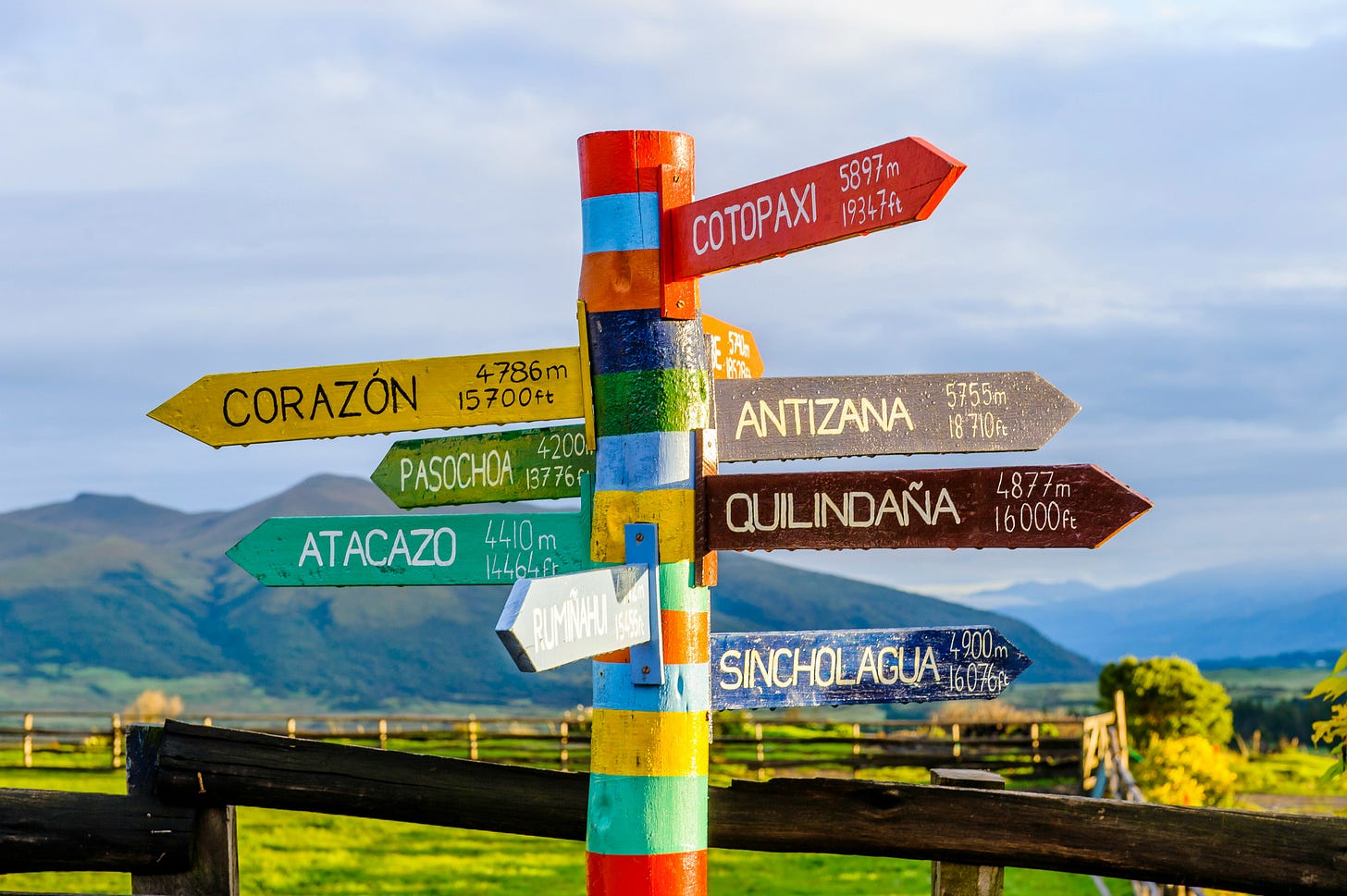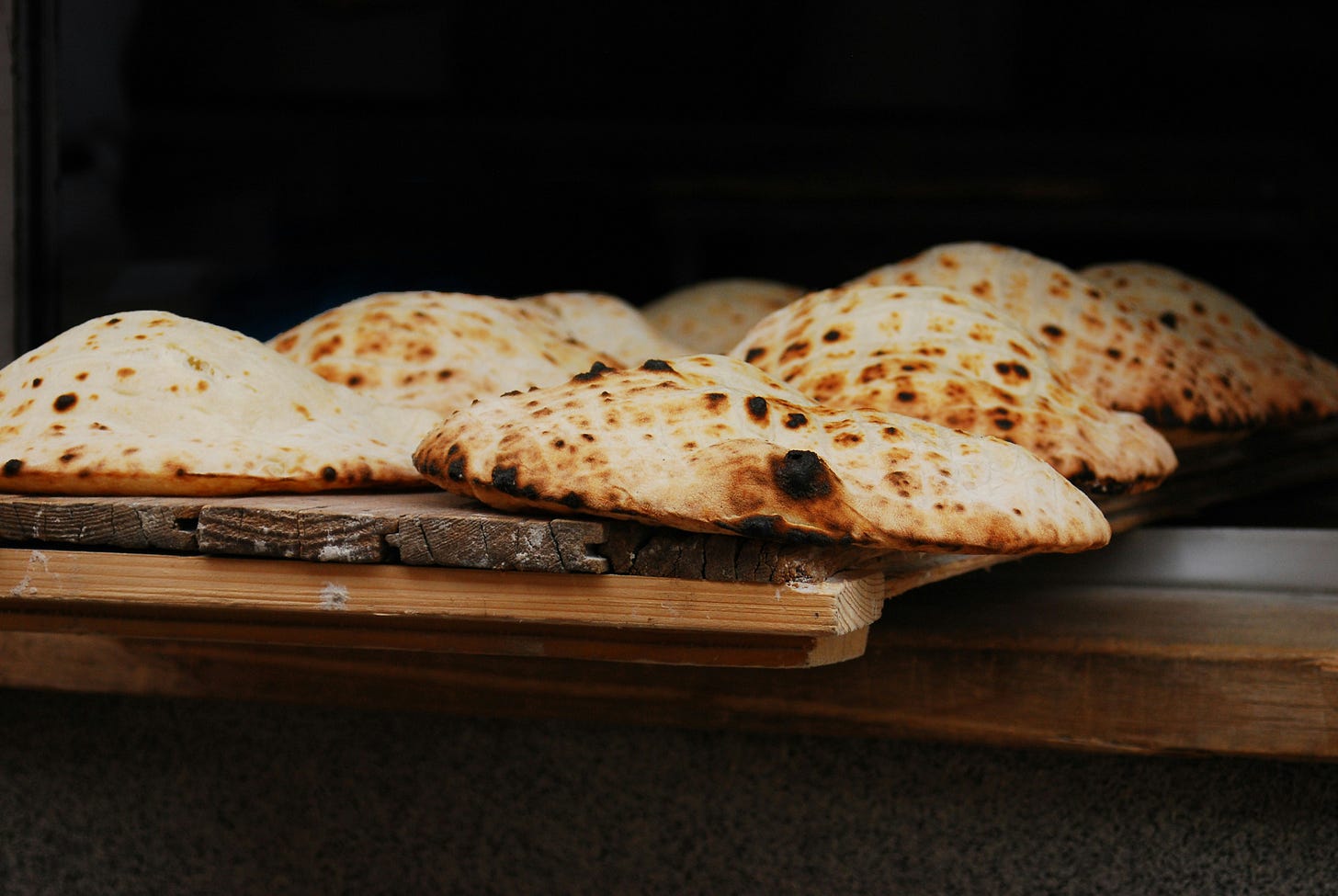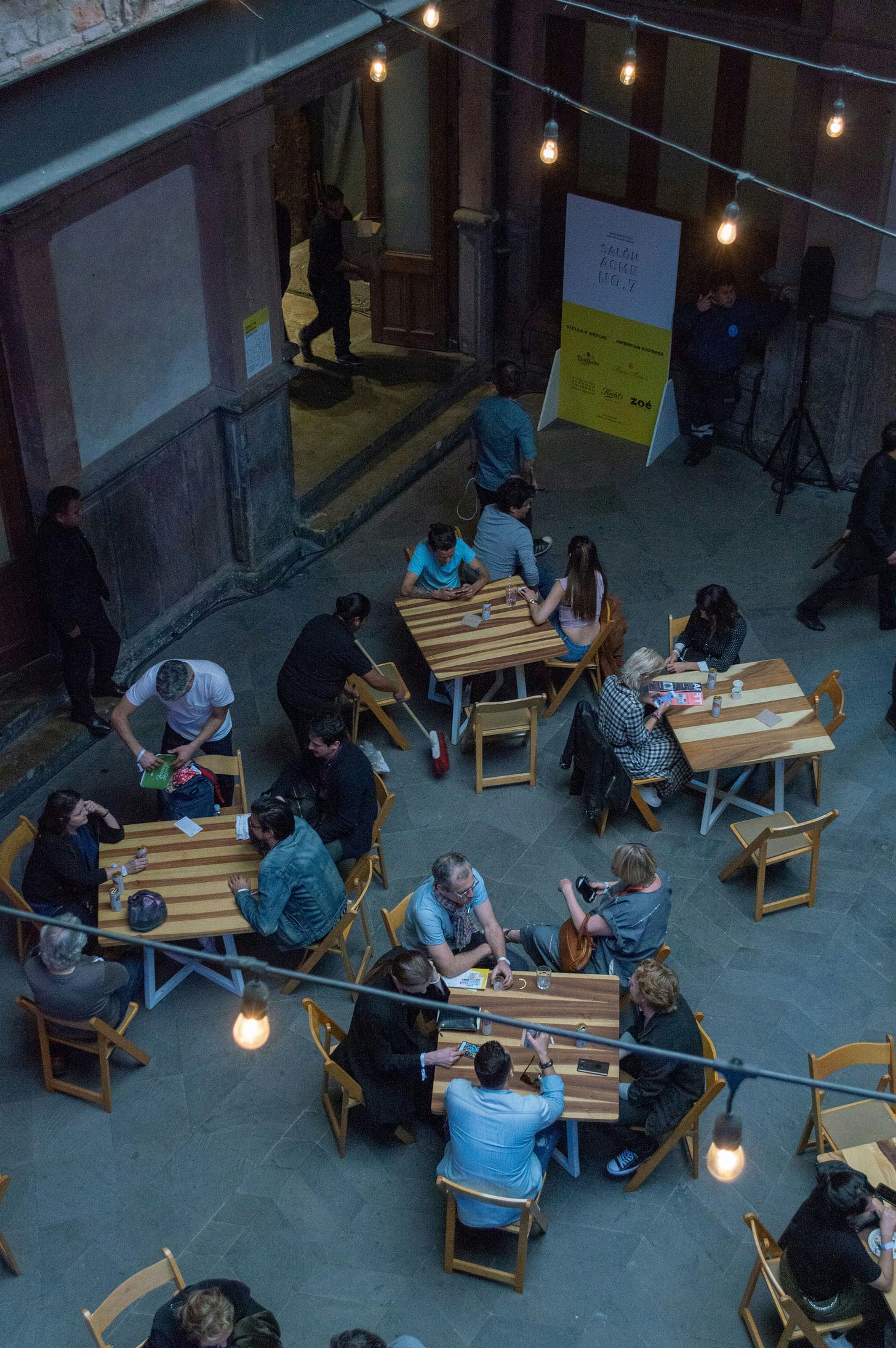Timing and transition note: July held both significant travel and a family move for me, which shifted my “almost every Friday” writing rhythm for a few weeks here at Go Out In Joy. We will pick up with the REstory series soon — the next topic we will cover is Hell. Until then I will share a few personal posts from my backstory.
I have been all over the map this past month — geographically, emotionally, relationally — due to travel and a conference and moving and jet lag and an IT update/crash and flight cancellations. It felt funny to write part of this post about communion in an airport on my second forced cancellation/layover in a European city while trying to return home.
A lot of major events were making news headlines as I was traveling; some are disruptive or violent, some are signs of hope. Those news headlines found me as I emerged from a immersive week serving with the beautiful organization Come Before Winter that offers in-depth renewal experiences with hospitality, study, worship, and connection for women in ministry around the world.1 Many of these women come to the renewal from high-stakes cross-cultural work — they are serving vulnerable populations in difficult parts of the world, and rest and reconnection are hard to find where they live.
In so many ways, the entire week felt like communion — with God and with each other: we came together because of our connection with Jesus, even when so many things around us seem broken or divided. But that doesn’t fit within what I was taught about communion as a child.2
I was raised in a church tradition that practiced weekly communion (also called the Lord’s Supper or the Eucharist) — but how it was taught or explained varied from congregation to congregation. In some places, instead of an enriching practice or a deepening sacrament, the Lord’s Supper became a burden. I’ve overheard others from this heritage tell stories of racing to a grocery store to buy grape juice and crackers before midnight on a Sunday (for fear of hell) when they’d missed church and communion because of a road trip.
However, my childhood experience was not quite that extreme. The general explanation I remember hearing when I was a child/tween/teen for why our church practiced weekly communion was often a “because the Bible says so” reference to a few specific texts (which fits with the inherited interpretation strategy that prioritized imitating the first century church).
However, for the detailed instructions, I was taught that during communion I was supposed to sit quietly and think really hard about Jesus dying on the cross and about my own sins. That way if I could feel really guilty, then I could be truly sorry and pray for forgiveness; then if I really, really, really meant to do better, I would eventually (hopefully?) sin less. It was almost portrayed as “emotional sincerity as a transformation strategy.”3
But that understanding of the Lord’s Supper was not a good fit for my personality. For as long as I can remember, I have always had an innate guilty conscience. I took on guilt that wasn’t mine, I anticipated guilt when it wasn’t there, and expected that most things might be at least partly my fault.
I was also a pretty compliant kid, and so even though I kind of followed those instructions that I was given, I kept things on the surface. I have realized much later as an adult that I had been holding communion at “emotional arm’s length” from my heart for years. Other faith experiences or spiritual practices could get into the depths of my heart or my mind to get my attention and contribute to transformation, but not the Lord’s Supper — I was going through the motions.
But in my thirties the Eucharist slowly began to come alive for me as a practice of deep beauty. And it started with a song — there is a song that some churches sing during communion in northern Mozambique; it has a simple melody and just two verses, one for the bread and one for the juice, that consist of one line repeated over and over:
Irutthu ya Yesu khinmaala ikuru caya
(the body of Jesus never runs out of power)
Ipome ya Yesu Khinmaala ikuru caya
(the blood of Jesus never runs out of power)
Our early years living in another country were spent struggling through language learning — it was so hard, and songs were even harder. But that song first planted itself in my mind because it was the very first song where I knew all the words (the nouns, the verbs, and why they were conjugated that way). That was a big milestone for me in language learning — I can remember what village we were in, and where I was sitting, and who was there.
And it’s a communion song. It slowly worked its way into my heart — singing that song almost every week during the Lord’s Supper became more and more beautiful to me over time:
The body of Jesus never runs out of power.
The blood of Jesus never runs out of power.
The song is about Jesus’ actual body — the body that was killed by violent, power-hungry human leaders and the body that was raised in resurrection power. But it’s also about people — the church is called the body of Christ. And although today we might think of blood only in times of violence or sickness or death, in the ancient world, blood was also the source of life and cleansing.
So in times when church is frustrating or doesn’t look like Jesus, that song reminds me that whatever is terribly broken right now cannot change the larger, long-term true story of New Creation that comes with healing and wholeness and power. And that slowly started to heal and replace that older “because the Bible says so” and “focus on your guilt” communion messaging I had heard when I was younger.
That earlier teaching came from a limited interpretation of 1 Corinthians 11.27-29 that isolates those three verses and misses the larger picture. However, looking at the wider context (v. 17-34) reminds us that these house churches would normally have a whole meal together before they would celebrate the Eucharist. Some of the believers in Corinth had been discriminating against the poorer members of that church, so that the rich people were leaving stuffed, even drunk, while the poor left hungry, so that when Paul writes them a letter, he scolds them with really strong language — that is the larger context of verses 27-29:
“Whoever, therefore, eats the bread or drinks the cup of the Lord in an unworthy manner will be answerable for the body and blood of the Lord. Examine yourselves, and only then eat the bread and drink the cup. For all who eat and drink without discerning the body eat and drink judgment against themselves.” (NRSV)
We should always interpret within the larger context; “discerning the body” means paying attention to each other. Caring for each other means not ignoring each other’s needs. Caring for each other means eating with concern for the people around us.
Whenever communion is an individual-focused event, we might still be missing the power available to the body of Christ, because that individual vision by itself is too small.
Widening our expectations of the Eucharist to include how we are treating our neighbors fits with what we’ve already been discussing in the REstory series — when we grow out of Story A and into the larger vision of Story B, we realize that salvation of individuals was never the main idea. God’s ultimate goal is to transform us into a new humanity who loves neighbors and enemies. When we are participating in that transformation into New Creation, we are being trained to imitate Christ in risking suffering in order to love others.
We are the body of Christ, and the body of Christ never runs out of power!
Before I close I want to help us see this passage in the even larger context of the rest of the letter of 1 Corinthians — because Paul takes the theme of the body and he keeps going.
In chapter 12 we’re reminded that the Holy Spirit is giving different gifts to different people, and people are compared to body parts. Since each one is indispensable, we shouldn’t compare or compete or value certain members of the body or certain gifts over others, because we are together making just one body, and that endless variety is by design.
Then in chapter 13 Paul says, you know, really, love is the whole point of all these gifts. All those gifts from the Spirit are temporary anyway, and love is the only thing that will last, because love is permanent. Then in chapter 14 we read that the reason any one has gifts is not for grabbing air time for your own ego BUT in order to bless and encourage others.
And that crescendo takes us to the climax of hope — 1 Corinthians 15 is THE resurrection chapter. In death our decaying bodies will be planted like seeds and will bloom like fruitful, flourishing plants. It’s a really repetitive chapter, as if Paul wants to make sure the audience gets the point — he uses the word body 14 times, and raise/resurrection 19 times.
Bodily resurrection into a new heavens and a new earth is THE final answer of a loving God to all the suffering of the ages. The objective hope of New Creation can start healing our fears and our selfishness now and therefore make us better lovers now. How we think of bodies in 1 Corinthians 15 will affect how we honor the body in 1 Corinthians 12 and discern the body back in 1 Corinthians 11.
We are the body of Christ, and the body of Christ never runs out of power.
This communion song has especially filled my heart during times of my own transitions — packing up and moving, reuniting with beloved friends, receiving new friends and neighbors. We don’t ignore each other, but we meet at the same table, because we are one body, and we use whatever gifts God’s Spirit has given us to fill each other with courage.
But recent news headlines also expanded my reflections on communion as I was traveling. We are connected to the body of Christ across time and space — but also across national boundaries and political allegiances and language barriers. Nations and empires are each temporary; they all fall, and not a single one of them deserves our ultimate allegiance. The one Spirit of God inhabiting our bodies is the most immediate connection that we have to each other.
The body of Christ never runs out of power. That is our strongest and deepest connection, even over huge geographical differences or centuries of change.
The blood of Christ never runs out of power — it continuously heals and brings life. That is our truest connection, even through suffering together or painful conflict.
May our experience of communion with the body of Christ continue to expand as we Go Out In Joy!
© 2024 Ladye Rachel Howell. All rights reserved.
Please check them out at comebeforewinter.org to learn more and to give to this ministry!
Rest assured that I am not trying to say everything there is to say about the Eucharist in this post! There are centuries of history in which the global church has wrestled (or fought) about the meaning and implementation of communion, and I am not trying to summarize that in this post — today I am only sharing one part of my experience.
These instructions were taught to me with good intentions at the time, meaning but come from insufficient assumptions about spiritual formation. Of course, emotional sincerity does matter, but it falls short of understanding the complexity of human transformation.












I can relate to 'unworthy manner' guilt. Probably in part as a result of reading a power/rescue story through a western guilt-innocence lens.